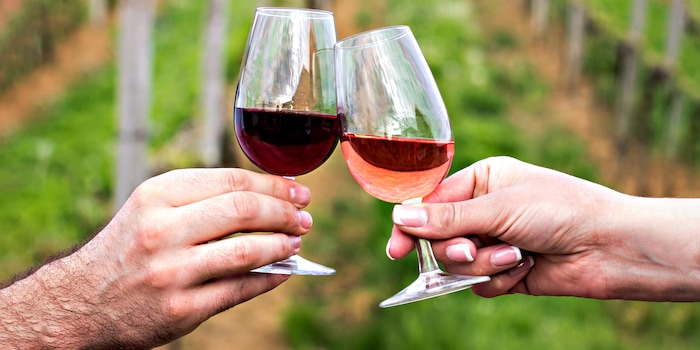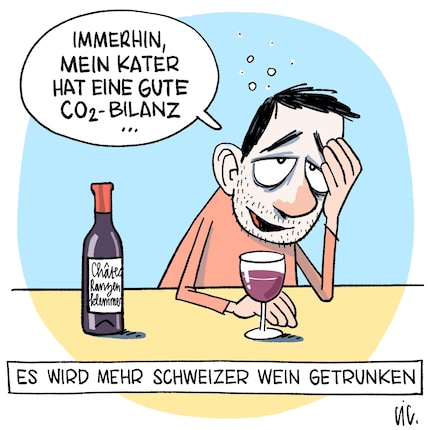

Switzerland is drinking more Swiss wine
Local wine is in demand. More Swiss wine was drunk last year. However, less wine was drunk overall: Wine consumption is on the decline.
No Greek wine for the Swiss: the proportion of Swiss wine consumed increased last year. As the Federal Office for Agriculture (FOAG) announces, the market share of domestic wines will be 37 per cent in 2022 - an increase of 1.6 per cent compared to the previous year.
The BLW also knows that we drank 237 million litres of wine in this country in 2022. Most of this was red wine, namely 153.5 million litres, and 83.7 million litres of white wine. Overall, however, this is 18 million litres less than was drunk in the previous year - a decrease of seven per cent.
87 million litres of Swiss wine
On the other hand, Swiss wine recorded a decline of just 2.8 per cent. Last year, we drank 87 million litres of it. Fun fact: unless I've miscalculated, that would be 0.002 per cent of Lake Zurich.
For the first time, the FOAG has also calculated the consumption of Swiss rosé and sparkling wines. At 6.8 million litres, Swiss rosé wines account for 7.7 per cent of Swiss wine consumption. The consumption of Swiss sparkling wine amounted to 0.6 million litres.
And: Thanks to the abundant harvest last year, stocks of Swiss wines are well filled, according to the FOAG. Cheers!
This is how it looks at Galaxus
Less Swiss wine is bought in the Galaxus range compared to overall wine consumption. In 2021, our buyers recorded a share of ten per cent for domestic wines. This will fall by one per cent in 2022. What stands out here is that Swiss white wines were purchased particularly often. In contrast, foreign wines enjoyed above-average popularity among red and sparkling wines.
We also noticed the trend of people drinking less wine overall: We recorded a general decline in wine purchases in the Galaxus range - this was particularly the case for white wine. A full 41 per cent less Riesling, Sauvignon Blanc and Chasselas were purchased in 2022. This decrease can largely be explained by the coronavirus pandemic: In 2021, many people were probably drinking at home and therefore conveniently ordered white wine from Galaxus. Interestingly, orders for red wine only fell by two per cent in the same period.
And the sustainability aspect?
It should be obvious that Swiss wines are fundamentally more sustainable than their counterparts from abroad. The transport routes between Lake Geneva, Ticino and Lake Constance are shorter than imported wine from South Africa, Australia or California. That already saves CO2. If you also drink organic wine, you are more likely to be on the safe side.

The observer has established that pesticides in particular are responsible for the poor ecological balance of wine. In Europe, 60 per cent of all fungicides are used for viticulture - although this only accounts for five per cent of the area under cultivation. A study by the ZHAW therefore concludes that wine is more sustainable when so-called piwi varieties are cultivated. These are more resistant to fungal diseases and therefore require less spraying. However, according to the ZHAW study, there are major differences between individual winegrowers.
Testing devices and gadgets is my thing. Some experiments lead to interesting insights, others to demolished phones. I’m hooked on series and can’t imagine life without Netflix. In summer, you’ll find me soaking up the sun by the lake or at a music festival.
From the latest iPhone to the return of 80s fashion. The editorial team will help you make sense of it all.
Show all
